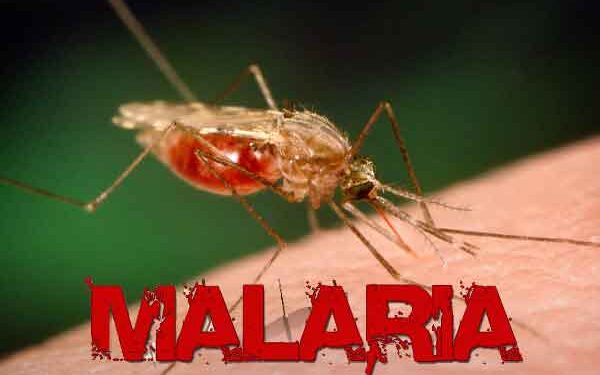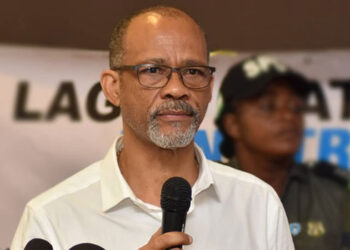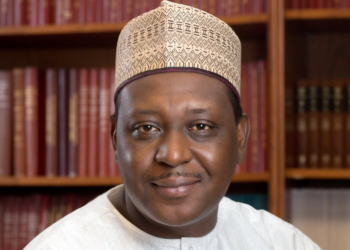Nigeria’s Coordinating Minister of Health and Social Welfare, Prof. Ali Pate acknowledged the generous contributions of $900 million from the U.S. Government and various partners towards Nigeria’s efforts in addressing malaria, HIV/AIDS, and tuberculosis.
He conveyed his gratitude during a meeting with Dr. John Nkengasong, the U.S. Global AIDS Coordinator and Special Representative for Global Health Diplomacy within the framework of the United States President’s Emergency Plan for AIDS Relief (PEPFAR).
The delegation also included Mr. Peter Sands, the Executive Director of the Global Fund to Fight AIDS, Tuberculosis, and Malaria, as well as Dr. David Walton, the U.S. Global Malaria Coordinator for the U.S. President’s Malaria Initiative (PMI) at Abuja.
Nairametrics learns that the U.S. government has an ongoing financial support of approximately 900 million dollars over the years to Nigeria representing a substantial and vital contribution to Nigeria’s healthcare programs.
What he said
Pate emphasized that the delegation’s visit underscored the importance they attach to the health and welfare of the Nigerian people and Nigeria’s role in global health improvement initiatives.
Nevertheless, he noted that while financial support and technical expertise were crucial, they were not the sole challenges facing Nigeria’s healthcare sector, with governance playing a pivotal role.
The minister said:
- “We appreciate the generosity of the American people and American government and other governments that contribute to the global fund because the global fund comprises seven countries, not only the United States government.”
- “This means that to govern health better, we have to look at the intergovernmental aspects as well as what we do as a Federal Government.
- “We have to do it with our development partners like yourself and others who are going to come after to serve Nigerians, to improve their health and well-being, and have good data to tell the story of where we are going.
Pate said that to strengthen the platform for the delivery of health services, the nation had to retrain and update standards of practice for its frontline health workers.
Global fund investments for health in Nigeria
Dr David Walton, the U.S. Global Malaria Coordinator for the U.S. President’s Malaria Initiative, commended Nigeria on the progress that had been made in healthcare deliverables, especially ensuring that Nigerians were protected during the COVID-19 pandemic.
He added that the global fund was proud to be a partner with Nigeria and the fund has a lot at stake.
Walton said:
- “Nigeria is the country that receives more global fund investments than any other country in the world, so your success is our success.
- “We are completely united with you in the objective of saving lives, improving the health systems, improving health and well-being for people all across this country.
- “We want to be aligned in the way we put our resources and capabilities behind the government. We are delighted to engage in these discussions, but we should see this as just a first step of ongoing dialogue.
- “However, it is also about action because ultimately it’s the actions that count and that is what will save people’s lives and improve people’s health.”
Malaria report
Also at the event, the Nigeria Malaria Report was inaugurated.
Dr. Matshidiso Moeti, the Regional Director for Africa at the World Health Organization (WHO), recognized and praised the ongoing commitment of the Global Fund and the U.S. Government, notably through PEPFAR and the President’s Malaria Initiative, for their unwavering support in the fight against diseases in the African region.
Dr Moeti emphasized Nigeria’s significant role as one of the largest and most economically influential countries in the region, emphasizing the country’s responsibility in disease prevention and control for its population.
Furthermore, she highlighted Nigeria’s substantial progress in enhancing the overall health of its citizens, noting notable achievements in HIV care between 2015 and 2021, where two of the 95-95-95 goals were met.
Additionally, Dr. Moeti mentioned the improving coverage of tuberculosis interventions and the increasing detection of tuberculosis cases over the same period.
Moeti said:
- “African Region carries a high proportion of the global malaria burden, accounting for about 95 per cent of all malaria cases and 96 per cent of all malaria deaths in 2021.
- ” While Nigeria accounts for around 27 per cent of the global burden of malaria cases, the country has seen major progress.
- “Malaria incidence has fallen by 26 per cent since 2000, from 413 per 1000 to 302 per 1000 in 2021. Malaria deaths also fell by 55 per cent, from 2.1 per 1000 population to 0.9 per 1000 population.”
Moeti explained that several factors contribute to the persistent disease burden in Nigeria. These factors include the immense size of Nigeria’s population, which presents challenges in scaling up interventions effectively.
Additionally, suboptimal surveillance systems currently capture less than 40 per cent of the country’s malaria data.
Furthermore, inadequate funding remains a barrier to achieving universal interventions across all states, and there is a tendency for people to opt for the private sector, which has limited regulation, in their health-seeking behaviour.
She added:
- “Further, learning from COVID-19, we know that continuity of provision of essential health services is critical to interventions in malaria and other diseases.
- “This is particularly in populations affected by humanitarian emergencies and changing environmental factors, such as climate change, and farming and mining practices that may increase transmission.
- “Addressing the prevention, elimination, and control of malaria and the burden from other diseases requires critical data and information gathering for evidence-based investment and decision-making.”
Dr Moeti highlighted that the 2022 malaria report for Nigeria serves as an exemplary model for leveraging data to effectively prioritize health interventions.
She emphasized that by harnessing this data, Nigeria can strategically prioritize and target interventions, optimize resource allocation, and enhance performance monitoring at both federal and state levels.
According to her, the report stands out by furnishing critical information on the malaria status in all 36 states and the Federal Capital Territory of Nigeria.
This unique feature enables a comprehensive subnational approach to addressing malaria, offering a comprehensive overview of the malaria landscape across states.
It delves into aspects such as population demographics, malaria interventions, climate factors, and the burden of the disease.
























